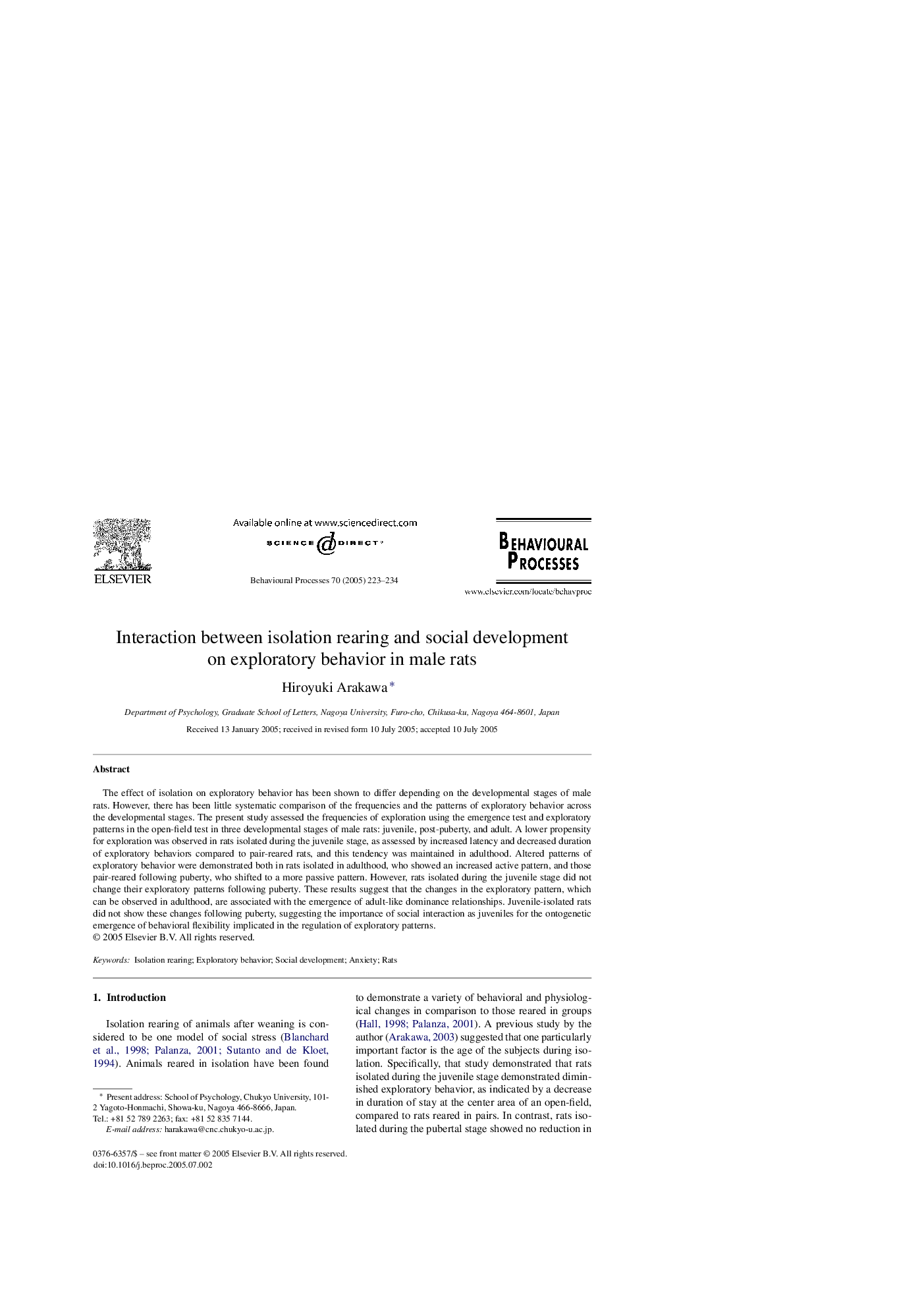| Article ID | Journal | Published Year | Pages | File Type |
|---|---|---|---|---|
| 8977353 | Behavioural Processes | 2005 | 12 Pages |
Abstract
The effect of isolation on exploratory behavior has been shown to differ depending on the developmental stages of male rats. However, there has been little systematic comparison of the frequencies and the patterns of exploratory behavior across the developmental stages. The present study assessed the frequencies of exploration using the emergence test and exploratory patterns in the open-field test in three developmental stages of male rats: juvenile, post-puberty, and adult. A lower propensity for exploration was observed in rats isolated during the juvenile stage, as assessed by increased latency and decreased duration of exploratory behaviors compared to pair-reared rats, and this tendency was maintained in adulthood. Altered patterns of exploratory behavior were demonstrated both in rats isolated in adulthood, who showed an increased active pattern, and those pair-reared following puberty, who shifted to a more passive pattern. However, rats isolated during the juvenile stage did not change their exploratory patterns following puberty. These results suggest that the changes in the exploratory pattern, which can be observed in adulthood, are associated with the emergence of adult-like dominance relationships. Juvenile-isolated rats did not show these changes following puberty, suggesting the importance of social interaction as juveniles for the ontogenetic emergence of behavioral flexibility implicated in the regulation of exploratory patterns.
Related Topics
Life Sciences
Agricultural and Biological Sciences
Animal Science and Zoology
Authors
Hiroyuki Arakawa,
